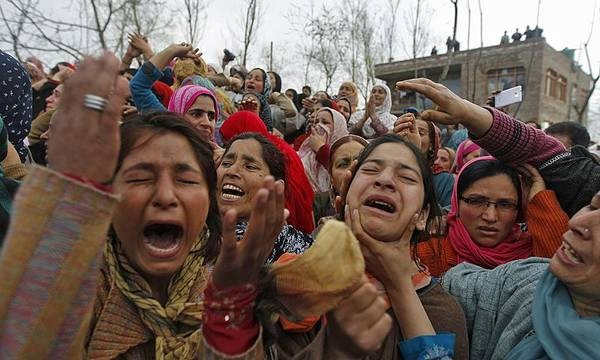
Moon Desk: Justice continues to elude the survivors of the brutal Sailan massacre, in which Indian army troops and police personnel gunned down 19 members of a family, including 11 children, in Surankote area of Poonch district in Indian illegally occupied Jammu and Kashmir on the intervening night of August 3 and 4, 1998. The gruesome massacre was carried out by personnel of the Indian Army’s 9 Para unit, accompanied by Special Police Officers (SPOs) after the killing of a local informer-cum-policeman by earlier that day. The victims, members of the Sheikh family, were rounded up at gunpoint and shot inside the house of Hassan Mohammad Sheikh. Survivors and rights groups say the soldiers later used axes to mutilate the bodies to ensure none remained alive.
One of the few survivors, Shabir Ahmed, who was 18 at the time, recalls how the troops barged into his home just after midnight and dragged the entire family—including his elderly parents and four sisters—to his uncle’s adjacent house. “They were looking for my cousin Imtiaz Sheikh…,” Shabir said. “When my uncle Lassa Sheikh said he had no contact with Imtiaz, the Major lost his temper and ordered his men to beat him up.”
In the chaos, Shabir managed to hide in a cattle shed. From there, he heard screams and then a barrage of gunfire. “My uncle was shot first. Then they fired indiscriminately at women and children. The firing lasted for 20 minutes,” he recounted. The next morning, the villagers found the bodies of 19 people—bullet-riddled and axed.Among the dead were Shabir’s parents and four sisters. It took three days to bury all the victims, and the survivors were threatened into silence. “We lived in fear.For three years, we remained quiet,” he added.
Although an FIR was filed by the police and a few SPOs were briefly arrested, all were released within days. Despite High Court intervention and a CBI inquiry, the case has dragged on for over two decades with no justice delivered.
The Jammu and Kashmir Coalition of Civil Society (JKCCS), in a statement, said that the Sailan massacre is not only a glaring example of the brutality committed by Indian forces but also exposes the systemic denial of justice. “This case demonstrates how the legal system wears down the victims’ families, aiming ultimately to shield the perpetrators under the cover of impunity,” the group said.Families of the victims visited the graveyard on the 27th anniversary of the massacre to offer prayers and reiterate their demand for justice.





